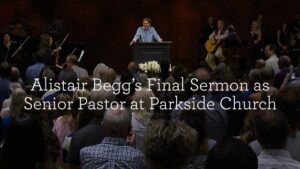Ex-Evangelicals and the Seek for a Deeper Religion

Fashionable Christianity
Why do evangelicals change into ex-evangelicals? The solutions range: some depart as a result of they’ve been wounded by unwise and even abusive leaders; others depart as a result of they arrive to doubt the truthfulness of Scripture; for nonetheless many extra, there isn’t any one apparent motive, only a lengthy, gradual drifting away. However for a big variety of ex-evangelicals, their disillusionment isn’t about non secular apathy or aversion however, somewhat, fairly the other. The ex-evangelicals I’m pondering of listed below are those that starvation for one thing extra of their non secular expertise—extra depth, extra seriousness, extra non secular engagement—and change into satisfied that such issues are to not be discovered inside the evangelical custom. They need real non secular formation however worry that the evangelical cabinet is naked. So as a substitute of turning into agnostics or becoming a member of liberal mainline Protestant church buildings, they flip to different traditions—notably Roman Catholicism or Japanese Orthodoxy—satisfied that these traditions foster the kind of non secular development that had eluded them as evangelicals.
This phenomenon was just lately highlighted in a extensively shared article within the New York Publish, which profiled converts to Japanese Orthodoxy. One such particular person is Elijah Wee Sit, who was raised as an evangelical however now dismisses “trendy Christianity” as unacceptably “watered down.” Reflecting, presumably, on the evangelicalism that he skilled rising up, he describes this “watered down” religion as follows: “Individuals go to church on Sunday, they sing just a few songs, they hearken to an hour-long sermon that appears extra like a TED speak, after which they go dwelling, they usually simply go on with their lives.”1
A Coronary heart Aflame for God explores non secular formation practices which can be in line with the 5 solas, presenting the riches of the Reformed custom for Twenty first-century evangelicals.
Equally, in his latest ebook Dwelling in Marvel, bestselling Japanese Orthodox creator Rod Dreher muses on the expertise of American Christians who change into dissatisfied with a felt lack of non secular depth and start questioning whether or not the traditional and medieval traditions of Roman Catholicism and Japanese Orthodoxy may level towards a extra wonderful method:
On summer time holidays, Individuals typically enterprise to Europe, go to the nice medieval cathedrals, and marvel concerning the sort of religion that would increase such temples to God’s glory from societies that have been poorer than our personal. We learn previous tales of miracles, visions, pilgrimages, and spiritual feasts and really feel the poverty of our personal non secular expertise. We dutifully drag ourselves to church on Sunday, we learn our Bibles, we observe the legislation, we work to serve our nation or our neighborhood, we keep present with our studying, however we nonetheless could marvel, Is that this all there’s?2
That final query captures the sense amongst some evangelicals that there’s something missing, paltry, and underdeveloped inside the evangelical non secular custom: Is that this all there’s? Does evangelicalism truly possess the assets and instruments to assist a sturdy and sustained expertise of non secular formation and Christian development?
And no matter one makes of the various solutions given in response, one can’t dismiss the importance of the query itself. Probably the most fundamental biblical assumptions concerning the Christian life is that it is going to be a rising life. Whether or not depicting the blessed life as that of “a tree planted by streams of water that yields its fruit in its season” (Ps. 1:3) or portraying believers as “new child infants” who “lengthy for the pure non secular milk” of God’s phrase so “in order that by it” they “could develop up into salvation” (1 Pet. 2:2), the Bible assumes all through that genuine non secular life is marked by improvement, maturation, and development.
The How Query
However as clear as that is likely to be, what typically feels much less clear is the how query: How do I nurture and maintain the kind of non secular formation that the Bible clearly calls me to? Amongst evangelical Christians, answering such questions on private non secular development has typically been difficult by the motion’s frequent emphasis on development of other forms, particularly numerical development and geographic unfold. Rooted within the Nice Awakening of the eighteenth century, evangelical Christianity has at all times prioritized a zeal to see the gospel unfold to extra individuals and extra locations. Modern evangelists like John Wesley (1703–1791) and George Whitefield (1714–1770) took their sermons exterior the church partitions to succeed in constituencies that their extra conventional contemporaries have been neglecting. And in our personal day, evangelicals proceed to work tirelessly and creatively to succeed in ever-wider circles with the gospel.
This, after all, is an effective factor. The risen Jesus informed his disciples, “You’ll be my witnesses in Jerusalem and in all Judea and Samaria, and to the ends of the earth” (Acts 1:8). Evangelical Christians have taken that mandate significantly, and we should always thank God for his or her witness. And but, as is so typically the case in a fallen world, even insights which can be good and proper and true can fog up our home windows when they’re emphasised to the exclusion of different insights which can be likewise good and proper and true. Within the case of evangelicalism, the motion’s zeal for growth and outward development has typically come on the expense of discipleship and inward depth.
Probably the most fundamental biblical assumptions concerning the Christian life is that it is going to be a rising life.
The famed evangelist Dwight L. Moody (1837–1899) captured an necessary side of evangelicalism’s historic DNA when he declared, “It makes no distinction the way you get a person to God, supplied you get him there.”3 Absolutely one can applaud the evangelistic ardour in that assertion whereas nonetheless recognizing that an unrestrained and finally counterproductive pragmatism lies shut at hand. When pragmatism pushes out precept, the result’s a Christianity lengthy on pleasure and quick on non secular maturity. As evangelical theologian and creator David Wells has put it, “What outcomes, all too typically, beneath all of the smiling crowds, the packed auditoria, is a religion so cramped, restricted, and minuscule as to be solely unable to command our life, our energies, or, as a matter of reality, even a lot of our consideration.”4 If that description precisely displays the evangelical expertise of the ex-evangelicals who now search non secular depth by Japanese Orthodoxy or Roman Catholicism, then one can’t assist however sympathize with their determination to depart, even when we finally disagree.
I don’t query that some expressions of evangelical Christianity lack depth. However what I do query is the idea that such shallowness is in any method intrinsic to the logic of the evangelical custom itself. My confidence on this level comes not from surveying present practices amongst modern evangelicals however, somewhat, from wanting backward to the Protestant Reformation custom out of which evangelicalism arose and to which evangelicalism is theologically indebted.
The Reformers and their heirs have been dedicated to reforming not simply theology but additionally their method to the observe of the Christian life. They sought an method to non secular formation that was deeply rooted in Scripture, understanding each that any God-honoring non secular practices have to be derived from Scripture and that God’s phrase itself is the first means by which the Lord shapes his individuals. Over and in opposition to a medieval custom that successfully sidelined private engagement with the Bible in favor of pilgrimages, relics, and a number of practices that have been, at finest, extrabiblical, the Reformers understood that dwelling, rising religion was a word-based affair: “Let the phrase of Christ dwell in you richly, educating and admonishing each other in all knowledge” (Col. 3:16).
In assist of this finish, Reformers like John Calvin (1509–1564), post-Reformation pastor-theologians just like the English Puritans, and later exemplars just like the eighteenth-century theologian Jonathan Edwards (1703–1758) all wrote extensively on the how query that typically feels so elusive. Our drawback, then, as evangelicals isn’t that we lack a practice of non secular formation however, somewhat, that we regularly have failed to note that it was there. Because the secular tradition turns into more and more hostile to the historic Christian religion, believers who want to stand agency might want to change into extra intentional than ever of their pursuit of genuine non secular formation. For some evangelicals, this want for depth will sadly lead them away from Protestantism and in direction of non secular practices that discover no foundation in Scripture. However for individuals who want to discover it, there’s a wealthy heritage of word-based spirituality proper right here at dwelling.
Notes:
- https://nypost.com/2024/12/03/us-news/young-men-are-converting-to-orthodox-christianity-in-droves/
- Rod Dreher, Dwelling in Marvel: Discovering Thriller and That means in a Secular Age (Grand Rapids: Zondervan, 2024), 10.
- William G. McLoughlin, Billy Sunday Was His Actual Title (Chicago: College of Chicago Press, 1955), 158.
- David F. Wells, The Braveness to Be Protestant: Reality-Lovers, Entrepreneurs, and Emergents within the Postmodern World(Grand Rapids, MI: Eerdmans, 2008), 14.
Matthew Bingham is the creator of A Coronary heart Aflame for God: A Reformed Method to Religious Formation.
Associated Articles







